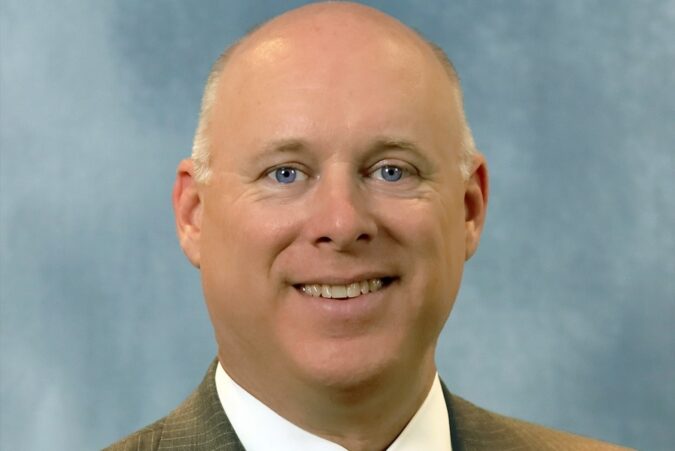
New FloridaWest CEO brings wealth of experience
A “phenomenal” location with an abundance of business assets and a quality of life that ranks “second to none” convinced Chris Platé to leave the comforts of North Carolina behind.
Platé accepted the CEO position at FloridaWest Economic Development Alliance and begins Dec. 16. He brings nearly 30 years of experience in economic development to FloridaWest, serving the past 25 with the Monroe-Union County Economic Development Commission.
“I’ve done about as much as I can in Union County,” Platé said. “It was serendipitous timing. Everything lined up. The office I left was on auto pilot. This is such a unique opportunity that I need to go purse this.”
Platé replaces Brian Hilson who served as CEO for only 11 months before departing in July. Hilson returned to Alabama to be near family and accepted the executive director position for the Bibbs County Chamber of Commerce. Rick Byars remains in his role as interim CEO until Platé arrives.
Platé rose up the ranks to executive director and led initiatives resulting in 7,000 new manufacturing jobs and more than $4 billion in capital investment across North and South Carolina. His leadership contributed to establishing the largest aerospace cluster in North Carolina and achieving the lowest unemployment rate in the Charlotte area in 23 years.
Monroe-Union County ventured into aerospace right after the 9-11 attacks, a bold move that paid significant dividends.
“People were looking at me like I had three heads because 9-11 had just happened and they were saying, aerospace is dead,” Platé said. “We went in when no one was interested.”
The breakthrough for the aerospace movement occurred when Platé recruited Goodrich Company (now Collins Aerospace) to the area. Other aerospace companies soon followed.
Platé considers Escambia County ripe for growth in aerospace with assets such as Pensacola International Airport, Naval Air Station Pensacola and its close proximity to companies in Mobile. He cited the business incubator Co:Lab, IHMC and The Bluffs as other assets that create competitive recruiting advantages for FloridaWest.
“There’s a lot of those things you kind of go through that just check so many boxes for an economic developer,” he said.
FloridaWest Board of Directors President David Bear said the agency sought a CEO with experience in aerospace and manufacturing. Platé met the criteria. Manufacturing wages raised from $9-11 to $32 an hour during his tenure at Monroe-Union County. His experience in tourism further strengthened his credentials.
“He’s done a lot within sort of this economic development and tourism role,” Bear said. “With his experience in both of those realms, it just felt like a good opportunity for us to leverage our large tourism base and expand it through economic development.”
Building relationships in the region will be a priority for Platé. He said he will rely heavily on his Florida contacts to establish connections.
“Economic development is difficult in the sense you’re not selling a widget, you’re selling an idea,” he said. “A person has to trust you implicitly because they could get fired if they make a bad decision and they could cost a company millions of dollars.
Platé said FloridaWest is already on a “solid foundation.” Maybe so, but the agency faces an identity crisis. Few in Escambia County understand its role. A survey of area leaders conducted earlier this year revealed just how few.
Nearly 50% of respondents said they had no understanding of FloridaWest’s success and impact. Forty-six percent said they had limited understanding and only 5% stated they had a solid understanding.
FloridaWest faces its identity crisis amid a five-year campaign to increase private sector investment by $500,000. The agency is dependent primarily on public funding. According to the audited statements for the last fiscal year, local governments provided the organization with $825,000 annually. The private sector chipped in only $250,000.
The campaign to increase private sector investments coincides with a five-year strategic plan that began in 2022. The plan emphasizes three main strategic goals: business recruitment, business retention and expansion, and the facilitation of innovation and entrepreneurship.
“That plan is still relevant, but it’s probably due for a hefty review,” Bear said. “Unfortunately, it’s been sitting on a shelf because we didn’t have the resources to fulfill it.”



